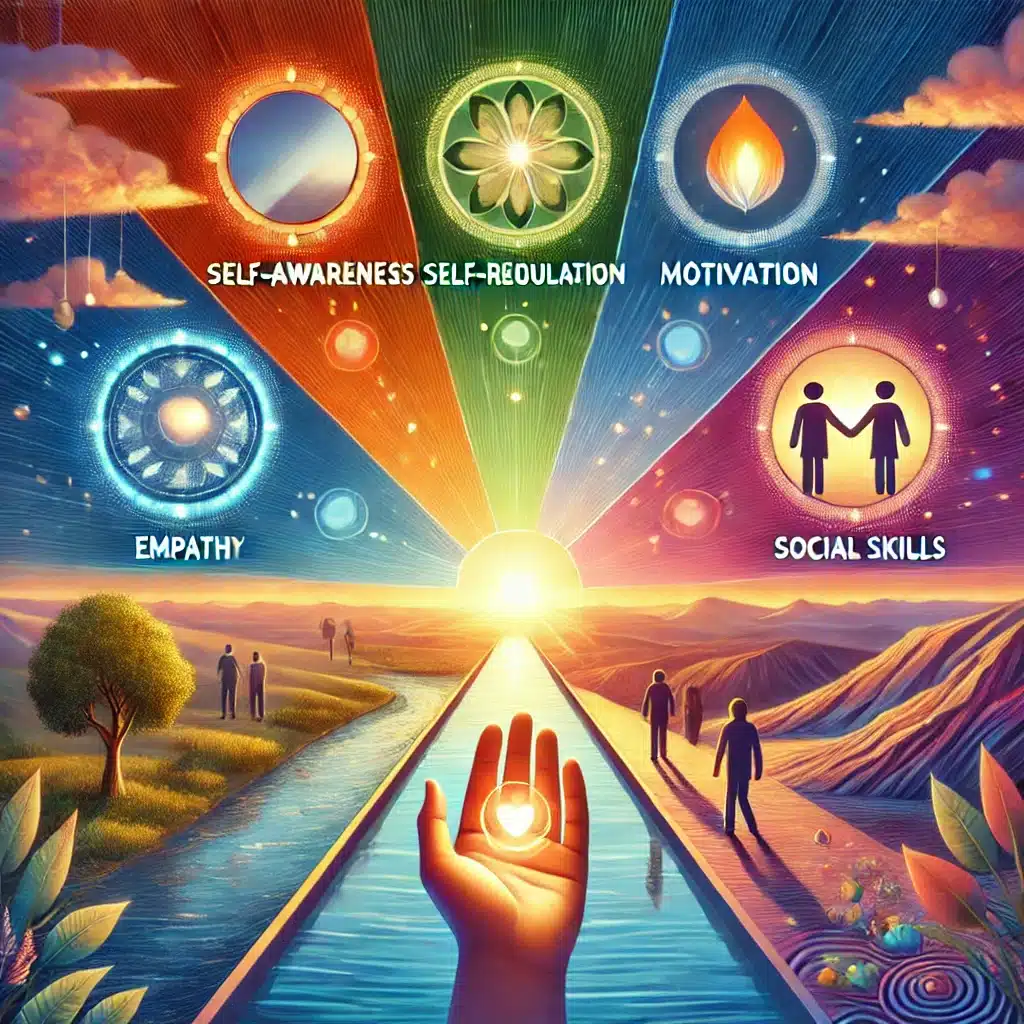Emotional Intelligence (EI) is about understanding emotions—both your own and those of others—and using that understanding to make better decisions, build stronger relationships, and navigate challenges. Here’s everything you need to know about EI in an easy-to-follow guide.
What is Emotional Intelligence?
Emotional Intelligence is the ability to recognize emotions, manage them effectively, and use them to handle stress, communicate better, and make thoughtful decisions. It’s also about showing empathy, which helps you connect with others and build meaningful relationships.
Key Components of Emotional Intelligence
There are five main parts of EI:
- Self-awareness: Knowing what you feel and why.
- Self-regulation: Staying calm and in control of your emotions.
- Motivation: Staying focused on your goals, even when things get tough.
- Empathy: Understanding how others feel.
- Social skills: Building relationships and working well with others.

Signs of Good Emotional Intelligence
People with high EI are self-aware. They understand their strengths, weaknesses, and emotional triggers. They are empathetic and handle conflicts calmly, looking for solutions rather than escalating the problem. They communicate effectively, listen actively, and adapt to change without losing focus. This makes them better at building and maintaining relationships.
Signs of Low Emotional Intelligence
On the flip side, low EI can show up as difficulty in understanding emotions or managing feelings. People with low EI may interrupt or dismiss others in conversations, struggle with empathy, act impulsively without considering the consequences, and often find themselves in unnecessary conflicts.
How to Improve Emotional Intelligence
Improving EI takes time and effort, but it’s worth it. Start by becoming more self-aware. Reflect on your emotions and think about how they affect your actions. Keeping a journal can help you track your emotional triggers.
Work on self-regulation by taking a moment to pause before reacting to emotional situations. Stress-relief techniques like deep breathing or mindfulness can make a big difference.
Practice empathy by truly listening to others without interrupting. Try to understand their perspective and imagine how they feel. Better communication also plays a role—be clear, respectful, and pay attention to body language and tone of voice.
It’s also helpful to ask for feedback from people you trust. Find out how your emotional responses come across to others. Finally, keep learning. Read about emotional intelligence, take training courses, and practice handling conflicts in a constructive way.
Why Emotional Intelligence Matters
Emotional Intelligence isn’t just about feelings—it’s about using those feelings to make better decisions, build meaningful relationships, and succeed both personally and professionally. By focusing on understanding yourself and others, you can create stronger connections, reduce conflicts, and lead a more balanced life.
Start small. Each step you take toward improving your EI can make a big difference in how you relate to others and achieve your goals. Emotional Intelligence is a skill, and like any skill, it gets better with practice.